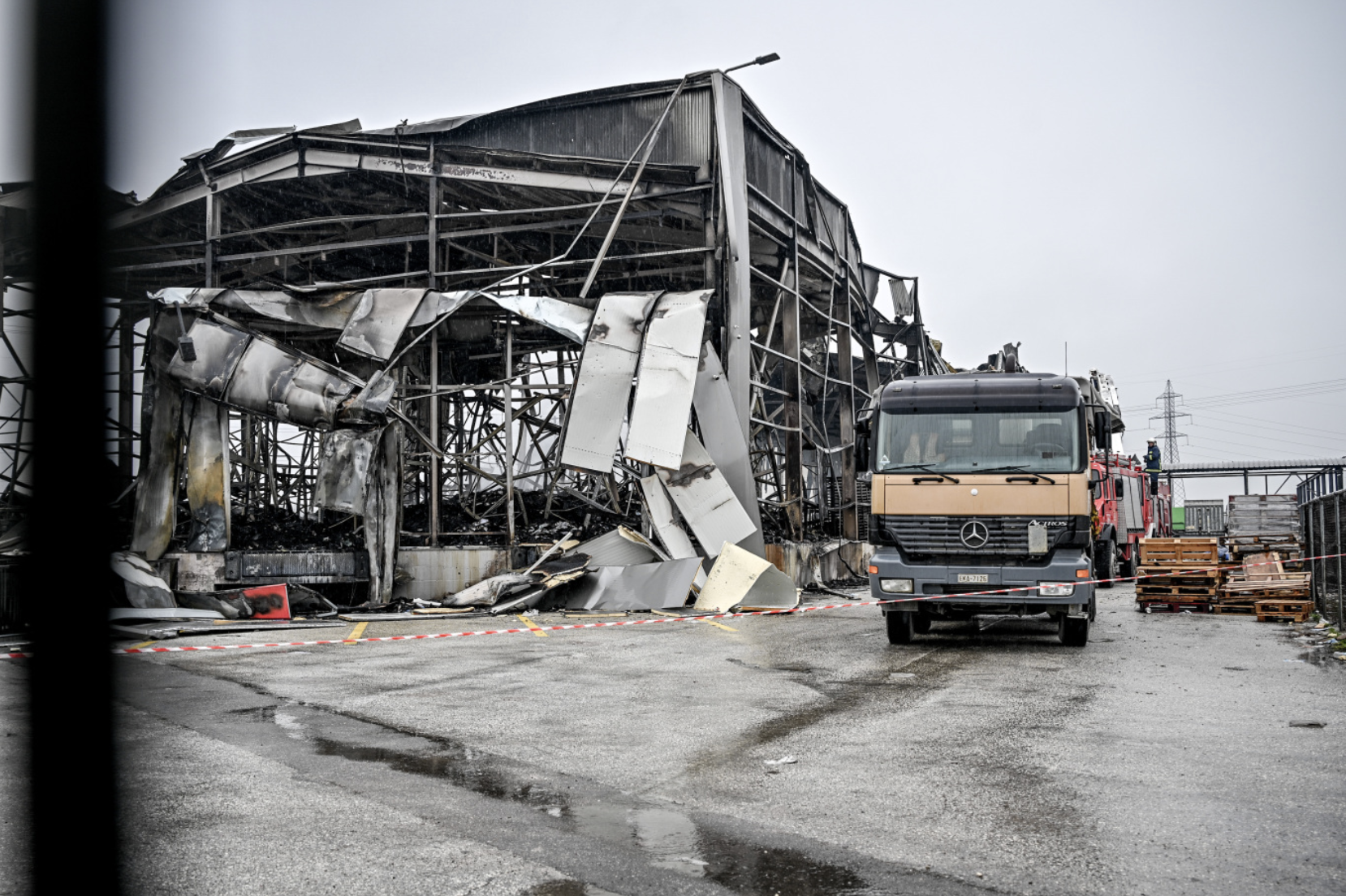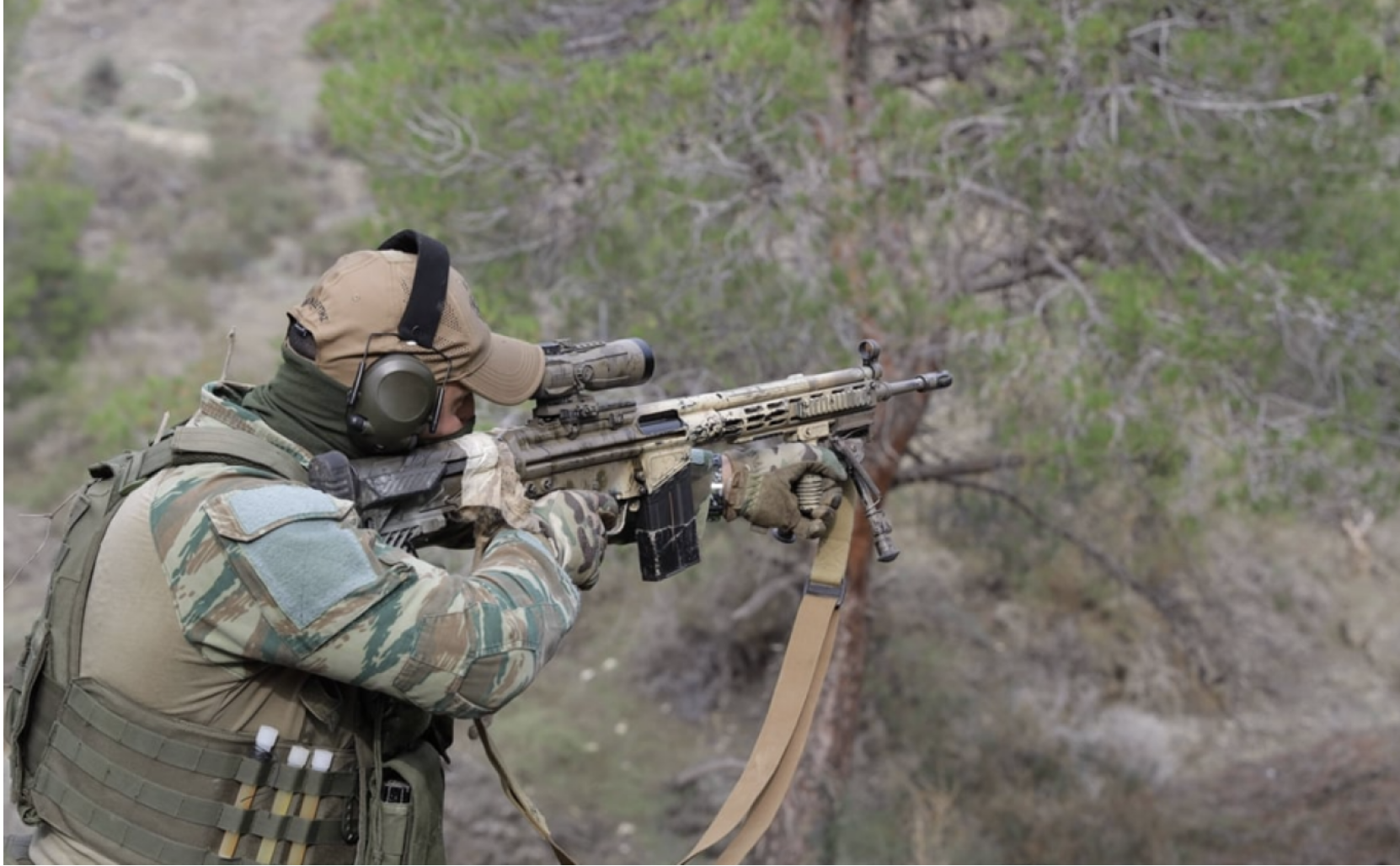A meeting is expected to be held today, at 17:00, under the Minister of Climate Crisis and Civil Protection, Vassilis Kikilias, on “Coral.”
The meeting will be attended by representatives of the Fire Brigade, the National Police, highway concessionaires, the army, the regions, municipalities, the PPP the ADMIE, etc.
According to the updated Weather Emergency Bulletin (EAD) issued today, Wednesday, February 19, 2025, by the National Weather Service (NMS), gradual deterioration of the weather is forecast from today, Wednesday, until next Monday, February 24, in our country and the wider region of south-eastern Europe – eastern Mediterranean, with an intense cold wave called Coral. The drop in temperature will be gradual, in total in the order of 8 to 10 degrees Celsius in northern and eastern Greece, with the lowest temperatures recorded at the weekend. Gusty northerly winds will prevail in the Aegean Sea, 7 and locally 8 Beaufort, while there will be two disturbances that will affect snowfall, generally light, mainly the northern, central and eastern mainland, as well as the Aegean islands and Crete.
A. The first disturbance is analysed below in terms of predicted temperatures and snowfall.
TEMPERATURES :
Today Wednesday (19-02-25)
a) In Macedonia and Thrace up to 6 to 7 and in places in Thessaly up to 8 degrees Celsius.
b) In central and eastern Sterea, Evia, and the northeastern Aegean islands up to 10 to 11 degrees Celsius, and some places in eastern Peloponnese up to 13 degrees Celsius.
Thursday (20-02-25)
a) In Macedonia, Thrace, Thessaly, and the northern Aegean islands from -6 to 6 to 8 degrees Celsius.
b) In central and eastern Sterea, Evia and eastern Peloponnese from -2 to 8 to 9 degrees Celsius.
Friday (21-02-25)
a) In Macedonia, Thrace, and the northern Aegean islands from -7 to 5 to 7 degrees Celsius.
b) In Thessaly, central and eastern Sterea, eastern Peloponnese, and Evia from -2 to 7 to 9 degrees Celsius.
Snowfall:
Today Wednesday (19-02-25)
a) In Macedonia, Thrace, Thessaly, and the northernmost Aegean islands in the mountains and semi-mountains and locally in areas with lower altitudes.
b) In central and eastern Sterea, Euboe, and eastern Peloponnese in mountainous and semi-mountainous areas.
c) In the mountains of Crete from the evening hours.
Thursday (20-02-25)
a) In central Macedonia, Thessaly, central and eastern Sterea, eastern Peloponnese, Euboea and the northern Aegean islands, in the mountains and semi-mountains and locally in areas with lower altitude.
b) In Crete, in the mountains, and gradually also in semi-mountainous areas.
Friday (21-02-25)
a) In Macedonia (mainly central), Thessaly, central and eastern Sterea (including Attica), eastern Peloponnese, Euboea and the islands of the northern and central Aegean, in the mountains, semi-mountainous areas and locally in areas with lower altitude.
b) In the mountains and semi-mountains of Crete.
B. The second disturbance, which according to current data is passing through our country over the weekend and next Monday, will be analysed in the coming days.
Citizens can be informed daily about the development of extraordinary weather phenomena in the regular weather bulletins of EMY and on the EMY website at www.emy.gr.
Recommendations of Civil Protection due to bad weather
At the same time, Civil Protection again addresses recommendations to citizens to be particularly careful, ensuring that they take measures for self-protection from the risks arising from the occurrence of severe weather phenomena.
The General Secretariat of Civil Protection (GSCP) (civilprotection.gov.gr) of the Ministry of Climate Crisis and Civil Protection, has informed the relevant government departments involved, as well as the regions and municipalities of the country, to be in increased readiness for civil protection, to deal immediately with the effects of the outbreak of severe weather.
In particular, in areas where heavy rainfall, thunderstorms or gusty winds are predicted, the GIS recommends that citizens:
– Secure items that may cause damage or injury if carried away by severe weather.
– Ensure that residential gutters and downspouts are unclogged and functioning properly.
– Avoid crossing streams and creeks, on foot or by vehicle, during storms and rainstorms and for several hours after they have ended.
– Avoid outdoor work and activities in marine and coastal areas during the occurrence of severe weather events (risk of lightning strikes).
– Take shelter immediately during a hailstorm. Take shelter in a building or car and do not leave the safe area until they are sure the storm has passed. Hail can be very dangerous for animals as well.
– Avoid crossing under large trees, under posted signs, and generally from areas where light objects (e.g., pots, broken glass, etc.) can become detached and fall to the ground (e.g., under balconies).
– Strictly follow the instructions of the local authorities, such as traffic police, etc.
In areas where snow and frost is forecast:
If they are to travel by car:
– To be informed about the weather and the condition of the road network.
– Have anti-slip chains and a full tank of fuel in their vehicle.
– Travel, if necessary, preferably during the day, preferably on main roads.
– Inform their relatives about the route they are going to take.
– Alter their travel schedule to avoid peak weather.
– Follow strictly the instructions of the relevant local authorities, such as traffic police, etc.
If they are to move on foot:
– Dress in several layers of light clothing instead of one heavy garment and wear appropriate shoes to avoid injuries due to slipperiness.
– Avoid unnecessary travel during peak weather conditions (heavy snowfall, freezing conditions).
For information and announcements on the prevailing situation and the passability of the road network due to the influx of flood waters in it or due to snowfall and frost, citizens can visit the website of the National Police www.astynomia.gr.
For more information and instructions on self-protection from severe weather phenomena, citizens can visit the website of the Ministry of Climate Crisis and Civil Protection at civilprotection.gov.gr.
Ask me anything
Explore related questions





